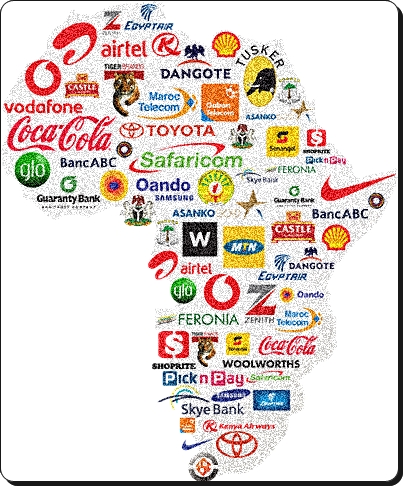
“Comment is free, but facts are sacred.”
By Martin Roche, Writer at Large
I’ve have spent over half my working life involved with newspapers. Public relations and advertising. I like to think I know a bit about how to influence opinion and how to persuade people to think about things in a way favourable to my clients. I’ve learned a lot in my time, but two lessons have a paramount place.
The first is that not telling the truth is always counter-productive to businesses, governments and society as a whole. If unchecked, untruthfulness eats away at brand loyalty and consumer confidence. When truth is at a premium in any society the foundations of stability, justice and progress become fragile and unstable. The second is that the longer the truth remains untold the bigger the trouble when the truth eventually is known.
I hold these truths of mine to be self-evident. Well, I did hold them to be self-evident until the arrival of the post-truth world.
Alternative facts
According to the new regime in the White House, we have something called “alternative facts.” Sometimes, the idea of alternative facts is perfectly valid, like when differing political parties selectively deploy genuine facts to make their case and ignore inconvenient facts.
A prime example of that can be found daily in the UK. The Pound has lost a great deal of its value since the vote to leave the European Union. The government deflects criticism away from that inconvenient fact. Rather than engage in discussing the weak pound causing inflation, meaning less money in family budgets, ministers talk about other more positive aspects of the economy. That’s politics the world over and while it may annoy some voters, political opponents and journalists, it isn’t in itself wrong.
Nobody is lying. Nobody is saying it’s not true that the Pound has weakened. The public understands the game.
In democracies, it is vital that the public understands the game and that it can only work when the game is fundamentally honest. When lies are told as facts, when facts are bent, twisted and distorted to the extent they are no longer the incontestable truth the casualty is credibility.
Credibility undermined
When credibility goes, trust goes. When trust goes, confidence in leadership goes. When confidence in leadership goes, support goes. It may take years for trust to fully erode, but it surely will.
America provides us with the best possible example of my contention. President Richard Nixon was revealed by the Watergate revelations to be the chief liar in a cabinet of liars. Some of his henchmen went to prison. He lost the support of the American people and was driven from office. The only president to suffer that ignominy.
Mr Nixon was a crook.
Mr Trump is the legitimately elected president of the United States. But Mr Trump favours boldly making statements that are, at best, economical with the truth.
All the evidence is that there were far fewer people at his inauguration than attended the women’s march a few days later or attended President Obama’s first inauguration Yet Mr Trump insists the reverse is the case. “An alternative fact,” as one his staffers put it.
Is this a minor case of ego getting in the way of statesman-like behavior? Well, you might dismiss it as such were it not for many other examples of Mr Trump expressing as fact things that are not fact.
More/
He says there was mass voter fraud during the presidential election, yet the most authoritative expert in America says in previous studies he found fewer that 100 examples across the whole USA. No evidence has come to light that indicates mass voter fraud when Americans went to the polls in November. (Incidentally, in the George W Bush years, voter fraud was found to be 0.00000132% and very little has changed in US election procedures since).
Mr Trump said unemployment in Wisconsin was 20%. At the time, the official rate was 4.6%. He claimed that two people were shot and killed during a speech President Obama gave in Chicago. According to police data, there were no murders and no shootings during the Obama speech.
High moral value
Let us hope that the realities of holding the most powerful elected office on the planet tempers Mr Trump’s propensity to be flexible with facts. The entire American system of government – a system and structure I greatly admire – rests on two pillars of the highest moral value. They are the rule of law and the expectation of the American people that the truth, the whole and nothing but the truth is the standard to which all elected people are to judged.
False news, Twitter storms, cyber espionage and increasingly partisan behavior by some hugely influential news media all make it more difficult for the ordinary citizen to work out what is truth and what is not. We see evidence of people turning away from established media, preferring to communicate within their own narrow social and social media groups. They are shutting out the world and putting up barriers to those they don’t want to hear from.
That type of behavior can only be damaging to plural, free and open democratic politics.
If nobody believes anybody why should I believe a hotel truly is the best in town, or that a new power station will bring cheaper electricity, or that a new drug is safe or that my insurance company will pay out if my house burns down?
More/
Truth in public life, in journalism, business, education and every other walk of life is like a giant insurance policy. When it is there we have a safety net. When it is not we are less safe.
One hundred and fifteen years ago the great British newspaperman, C P Scott, wrote, “Comment is free, but facts are sacred.”
Leaders everywhere and in every trade and profession should be urged to follow that approach.
Martin Roche has advised countries, cities and regions in Africa, Asia and Europe on communications strategy, tactics and execution. He has written for newspapers and magazines across the world. He read politics and international relations at the University of Aberdeen and is a partner at the geopolitical communications consultancy, Etoile Partners. www.etoilepartners.com


